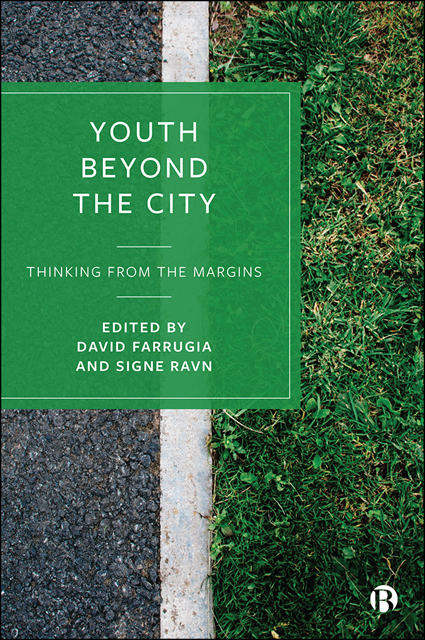Book contents
- Frontmatter
- Contents
- List of Figures and Tables
- Notes on Contributors
- Introduction: Thinking from the Margins
- Part I Inequalities: Education and Aspiration on the Margins
- Part II Materialities: Spatiality and Sensory Embodiment
- Part III Identities: Mobility, Rootedness and Belonging
- Part IV Temporalities: Historicizing Space and Place
- Index
9 - Housing and Regional Rootedness: Home Ownership beyond the Metropolis
Published online by Cambridge University Press: 13 October 2022
- Frontmatter
- Contents
- List of Figures and Tables
- Notes on Contributors
- Introduction: Thinking from the Margins
- Part I Inequalities: Education and Aspiration on the Margins
- Part II Materialities: Spatiality and Sensory Embodiment
- Part III Identities: Mobility, Rootedness and Belonging
- Part IV Temporalities: Historicizing Space and Place
- Index
Summary
Introduction
Recent discussions of Australian young adults have been marked by concerns about housing affordability and subsequent declines in rates of home ownership among the 25– 34-year-old demographic. The Australian Bureau of Statistics’ (ABS) most recent Survey of Income and Housing (2017– 2018) found that only 37 per cent of 25– 34-year-olds were home owners, down from 57 per cent in 1971 (ABS, 2019a). Attention has focused, however, on home ownership in capital cities, with less attention given to the experiences of those living in regional and rural areas. This lack of attention is perhaps unsurprising as Australia is one of the world's most urbanized countries, with close to 90 per cent of the population living in urban areas at the time of last census (ABS, 2016).
However, this lack of attention beyond the metropolis also echoes the wider tendency to focus on urban areas in youth sociology, and to use the lives of urban young people as a benchmark for what is common in the lives of all young people (Farrugia, 2014). In the case of home ownership, this tendency to conflate the experiences of non-urban youth with those of their urban counterparts overlooks crucial points of distinction. While much of rural Australia has also been impacted by the rapid price inflation that has affected urban property markets since the year 2000, rural areas also contend with issues such as bifurcated housing markets in resource boom areas hosting temporary workers, with a split between high value properties and affordable but low quality housing (Beer et al, 2011). However, just as rural and regional Australia is highly heterogeneous, so too are its property markets. It is thus useful to consider the ways in which particular non-urban areas differ not just from urban areas, but from each other.
In service of this aim we seek to address the ways in which young adults living in Launceston, a regional centre in the Australian island state of Tasmania, negotiated issues related to housing, considering how these experiences provide a window into challenges associated with employment, attachment to people and places, and their future thinking. We draw on data from a one-day dialogic workshop conducted with 19 29– 30-yearold participants from the long-running Life Patterns study.
- Type
- Chapter
- Information
- Youth beyond the CityThinking from the Margins, pp. 175 - 192Publisher: Bristol University PressPrint publication year: 2022



